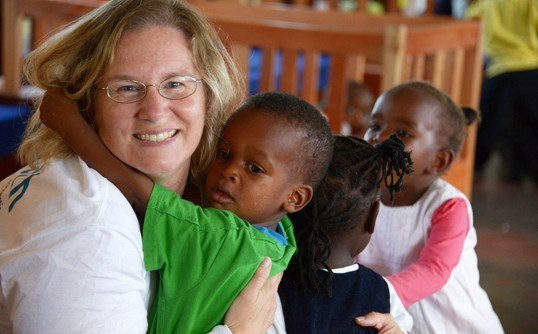

At I Want Her Job, the description “dynamic self-starter” is often shared as a key trait for success. Today, we serve up the picture of a dynamic self-starter in Julie Clugage, the co-founder and executive director of the nonprofit Team4Tech. Their goal: to improve access to 21st century education in developing countries by connecting technology professionals with nonprofit and non-governmental organizations already working to improve education in these geographies.
With a background in economic development and experience living abroad in a Guatemala village for more than two years, educational access has always been a passion for Julie. While living in the country, she taught school and set up a computer lab, igniting the spark for Team4Tech (but the nonprofit wasn’t created quite yet). After Julie’s experience, she completed her graduate studies and went on to work at a handful of development institutions and, after listening to that little inner voice again, returned to the tech sector at Intel.
While at the company, she started the Intel Education Service Corps in 2009, a corporate social responsibility program for education. “I saw that we had more than 100 thousand talented, amazing employees around the world who wanted to get involved in projects, but just didn’t know how,” Julie says. It was that thought — along with her role of supporting nonprofit customers using Intel’s education platform — that sparked the initiative.
“There were all of these doubters who said, ‘Is anyone going to want to do this? Will their managers let them go for two weeks?’ We had 500 people apply for the first 20 spots and it’s been like that ever since,” Julie says. Now more than 400 Intel employees have completed more than 80 projects. The program made Julie think: What about applying this formula for all tech companies? So, two years ago, Julie and her former boss at Intel, Lila Ibrahim, left Intel and co-founded Team4Tech (Ibrahim, who was leading the education group at Intel at the time, has since left to become a venture capitalist at Kleiner Perkins Caufield & Byers). “I feel like I’m really living the startup life right now,” Julie says. “We have five people working on Team4Tech and this year, we’ll have done seven projects with tech employees from eight different companies.” Even more proof that the little things matter, because they’re often catalysts for much bigger things.